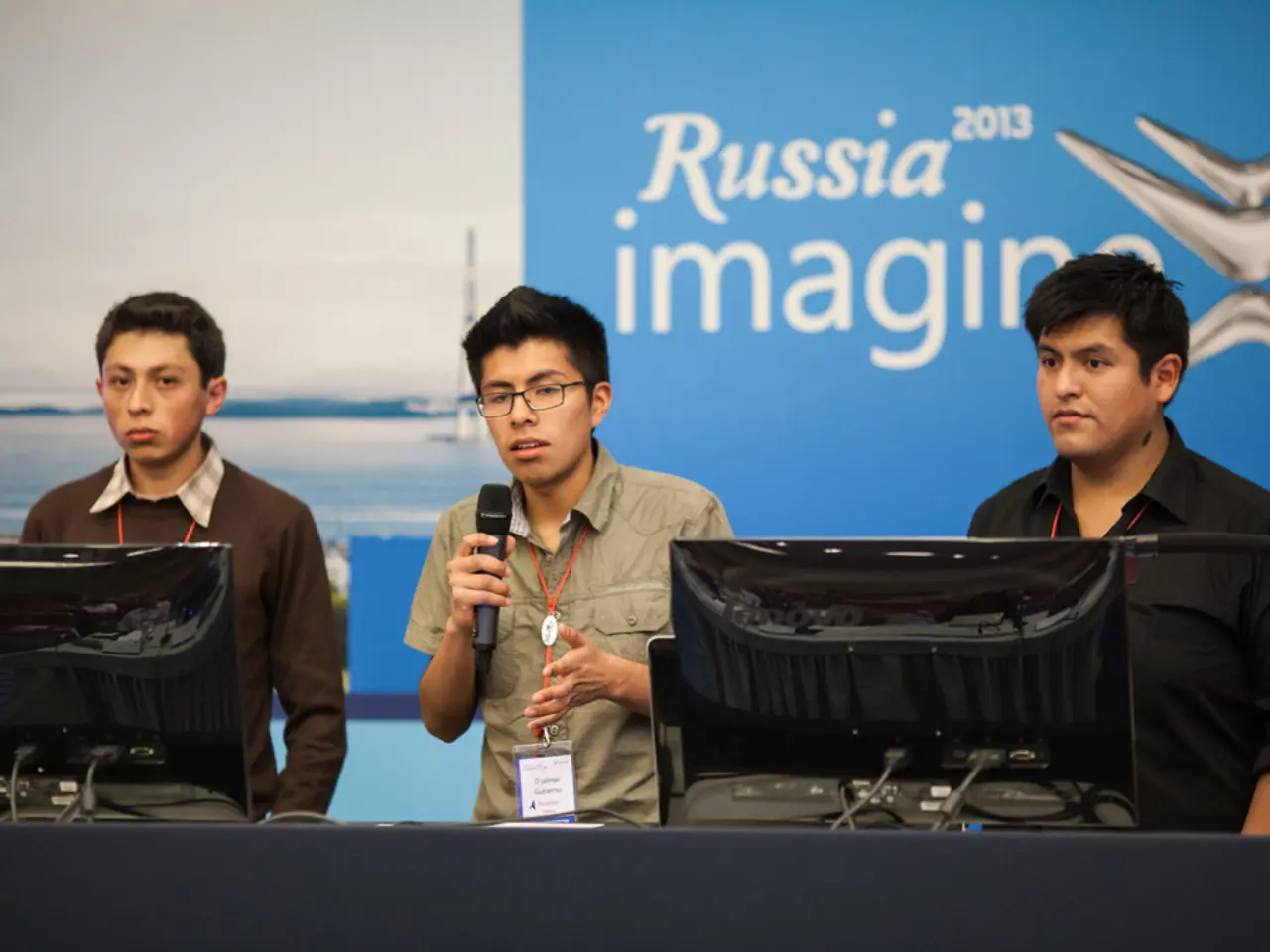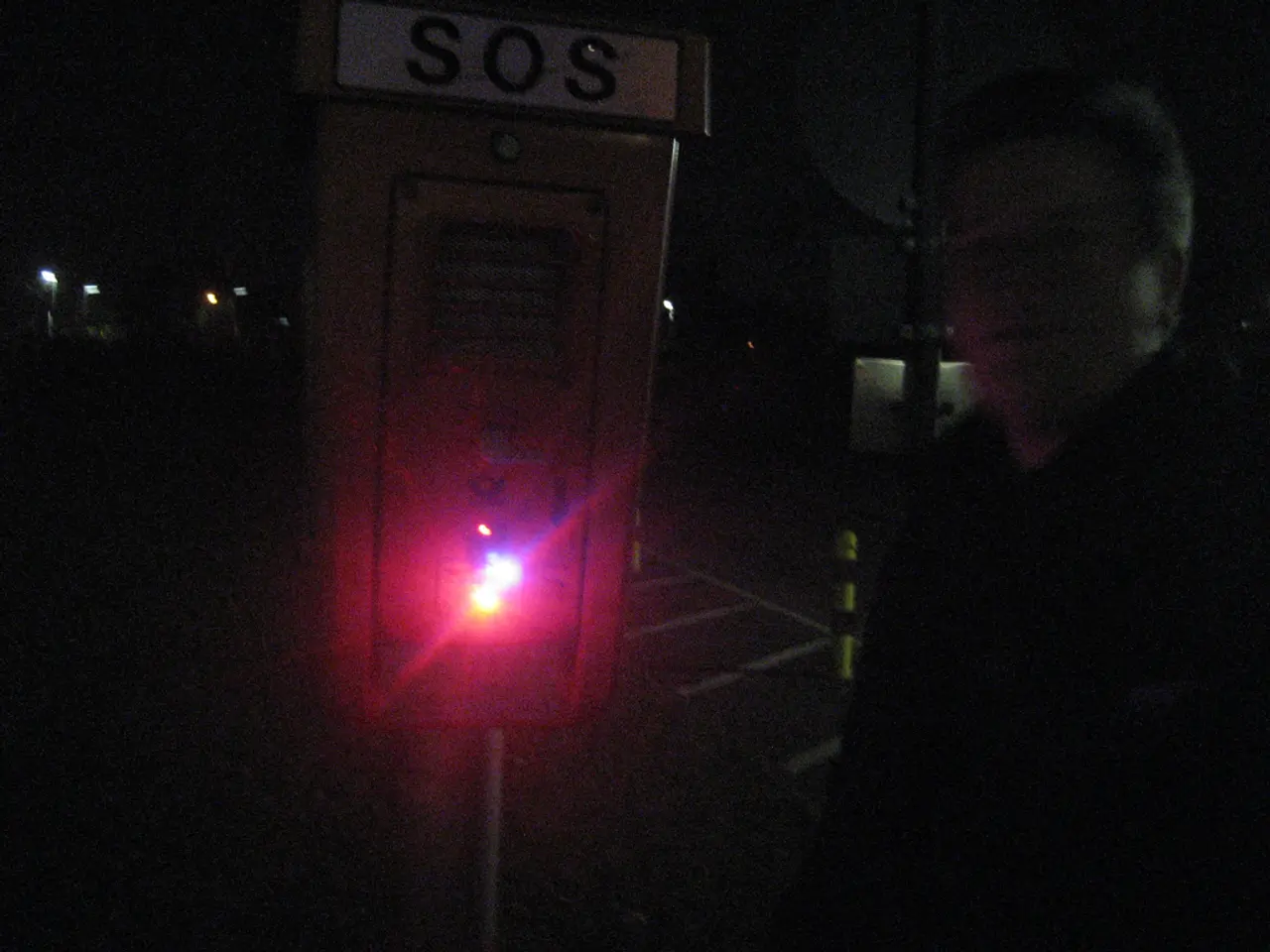Russia linked to dissemination of anti-Ukrainian misinformation by Ukraine's envoy in Hungary
Ukraine's Ambassador to Hungary Accuses Russia of Fueling Anti-Ukrainian Sentiment
Fedir Shandor, Ukraine's Ambassador to Hungary, has accused Russia of playing a significant role in stoking anti-Ukrainian sentiment in Hungary, particularly in relation to incidents in Ukraine's Zakarpattia Oblast.
In an interview with the Ukrinform news agency, as reported by European Pravda, Shandor expressed his concerns about Russian disinformation campaigns that aim to undermine Ukraine's independence and territorial integrity. These campaigns sometimes advocate for parts of Ukraine to be annexed by neighboring countries like Hungary, intensifying anti-Ukrainian feelings in regions close to Hungary.
Shandor believes that Russian operations employ social media and fake accounts to disseminate pro-Russian and anti-Ukrainian content. These accounts blend political posts with non-political content to build trust among local populations before injecting divisive narratives. Similar strategies have been documented in countries near Ukraine, showing Kremlin tactics to influence public opinion by sowing division and distrust.
Investigations have revealed that individuals affiliated with Russia have sought to influence political processes within EU member states, including Hungary, by spreading anti-Ukraine sentiment to weaken EU unity and prepare the political environment ahead of elections.
The broader purpose of Russian propaganda, including within Hungary, is to undermine Western support for Ukraine, weaken NATO cohesion, and portray Ukraine as illegitimate or hostile. This, according to Shandor, serves to stoke ethnic and political tensions in border regions like Zakarpattia, which is home to Hungarian minorities and has experienced heightened ethnic tensions during the conflict.
Shandor's comments come in response to the escalating tensions between Ukraine and Hungary over recent incidents in Zakarpattia Oblast. He suspects that the Russian embassy and Kremlin-funded media outlets may have been sources of false reports regarding anti-Hungarian slogans on apartment blocks in Mukachevo. However, no actual evidence of these slogans was found.
Shandor also referred to the Volyn tragedy, a series of events leading to ethnic cleansing during World War II, as an example of long-standing rivalry between Ukrainians and Poles. He suggests that the entire situation in Zakarpattia was manipulated to create tension between Ukraine and Hungary.
Shandor confirmed that these topics had been discussed with officials in Budapest and noted that they had helped prevent further escalation. He warns against emotional reactions to these political manipulations, stating they serve the interests of anti-Ukrainian forces.
Bots are suspected of spreading fake news, and Hungarian officials are responding to these false reports. Shandor also believes that Russia is employing similar tactics in other countries, such as Poland and Slovakia, to create conflicts between Ukrainians and other ethnic groups.
The Ambassador's comments echo concerns about Russian influence operations in Europe, particularly in countries with significant ethnic minority populations close to Ukraine's borders. As the situation in Zakarpattia continues to evolve, it remains crucial to remain vigilant against disinformation and to foster strong diplomatic relations to maintain peace and stability in the region.
- The Ukrainian Ambassador's concerns about Russian disinformation involve not only Ukraine's independence and territorial integrity but also the European Union's policy and legislation, as they have attempted to influence the political processes within member states like Hungary.
- The cultural implications of these information wars are inherently important as well, given that Russian propaganda seeks to sow division and distrust not just between nations, but also within societies, exploiting general news topics such as war-and-conflicts and ethnic tensions.
- In the broader context of international relations, these manipulations aim to undermine Western support for Ukraine, weaken NATO cohesion, and question the legitimacy of Ukraine, thereby affecting the health of democracy within the alliance.
- Governments, particularly those bordering Ukraine, must pay close attention to instances of disinformation and respond to them promptly, not just for the sake of their own internal stability but also for the overall peace and economic prosperity of the region.





